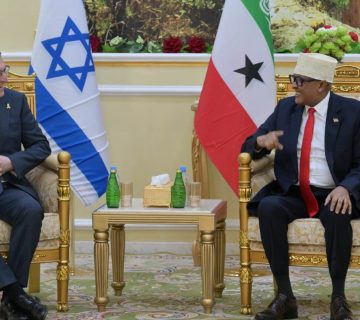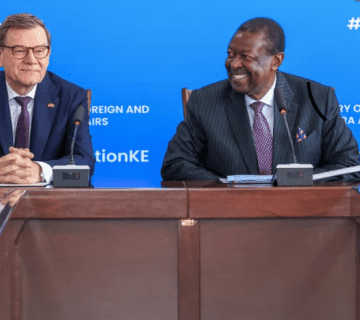In recent years, West Africa’s Sahel region has emerged not only as a theatre of military coups but as a battleground in which regional order is rewritten. The military rulers in Mali, Assimi Goïta and Burkina led Faso, Ibrahim Traoré, initially formed a counter-alliance alongside Niger and resisted pro-democracy military intervention by the regional bloc, the Economic Community of West African States (ECOWAS). The two states also expelled French troops which were a huge component of the counter-insurgency and counter-terrorism forces deployed under G5 Sahel framework, opening up security vacuums without adequate capacity to fill such gaps. But the very security collapse that justified their coups now threatens to overwhelm them as insurgent jihadist groups such as Jama’at Nusrat al‑Islam wal Muslimin (JNIM) and Islamic State in the Sahel Province (IS-Sahel) surge across the terrain they claim to govern.
Alliance, Defiance and the ECOWAS Challenge
Mali, Burkina Faso and Niger formally left ECOWAS on 29 January 2025, a seismic break by three junta-ruled states from the 15-member West African regional bloc. Prior to that, in September 2023, the three founded the Alliance of Sahel States (AES), a mutual-defence and political bloc to offer an alternative to ECOWAS’s perceived dominance. Mali and Burkina Faso had earlier pledged to shield Niger from ECOWAS-led intervention after the 2023 coup in Niamey — deploying warplanes in what was effectively a show of force to dissuade ECOWAS from acting. In doing so, the two juntas positioned themselves as de-colonialist and defenders of sovereignty, in opposition to ECOWAS’s insistence on restoring civilian democratic rule, especially in Niger.
For the junta leaders, this strategy deflected the ECOWAS threat of military intervention, allowed them to reinforce the legitimacy of their rule by casting themselves as bulwarks against foreign meddling, and provided a narrative of independence from former colonial powers. Abandoning ECOWAS also enabled closer alignment with alternative partners, notably Russia and Turkey.
The Security Bargain: Why the Alliance Turned Urgent
The rationale for the security manoeuvres by Mali and Burkina Faso was not purely ideological. Both have been engulfed in an escalating jihadist insurgency by JNIM and IS-Sahel, which has more than doubled for Mali since 2021 and Burkina Faso since 2023. Both juntas are struggling to hold territory, as insurgents expand territorial control and commanding the majority (above 60 percent) of the respective national territories. By walking out of ECOWAS, Burkina Faso and Mali effectively traded democratic transitions for security implosion and potentially, state collapse. ECOWAS cannot also activate regional security mechanisms to intervene against the insurgencies or forestall state collapse.
JNIM now commands an estimated 6,000 fighters and is operating alongside administrative structures in areas of Mali and Burkina Faso while IS-Sahel continues to exploit porous borders and weak governance, particularly in the tri-border zone between Mali, Burkina Faso and Niger. In Burkina Faso, population centers are under the chokehold of the insurgents now inching closer to the capital, with fatalities linked to militant Islamist violence nearly tripling in three years to 17,775 deaths from 6,630 deaths. Civilians and soldiers face record-scale attacks, with the junta now enlisting vigilante groups to bolster security. In Mali, it is not only the territory and population but also the economy, suffering a tight stranglehold by the jihadist insurgents, which are targeting custom points and key transit routes. Since the beginning of October, the insurgents have intensified attacks on oil tankers, causing fuel crisis in the capital Bamako.
The Nail-biting Hours
The current situation leaves the military rules in Mali and Burkina Faso in a precarious place. Two intertwined risks loom. The jihadist takeover of territory as state control erodes, and a munity or coup from within. Jihadists are encroaching ever closer to the capitals, threatening to turn insurgent victories into regime-crisis which might even precipitate state collapse. Key towns have fallen and both juntas may face an existential challenge if the militants reach the capitals.
As such, the very reason earlier coups succeeded in these countries, the armed forces’ frustration with security failure, has come back to haunt the coup leaders. If the military in Mali or Burkina Faso will strongly perceive that the juntas are failing, not only politically but in basic security, and that the prospect of state collapse is ever growing, the same dynamic may trigger new unrest within the military or even coups. The only factor which held solidarity within both militaries was the external threat from ECOWAS; being out of their way, internal security and political turmoil might trigger cracks within both militaries. Simply bolstering the regime’s defiance of ECOWAS will not suffice if troops believe they are being sent into unwinnable wars, or the state no longer functions.
What next?
There are several possible trajectories the situations in Burkina Faso and Mali might acquire. The juntas might collapse from security failure, if jihadist groups expand territorial control into the capitals, rile up public anger and military discontent and leadership defections spark another coup in Burkina Faso or Mali.
Second, Mali and Burkina Faso may experience territorial carve-up as jihadist “emirates” open up in the areas they control, as the regimes focus on holding only the capitals, thereby undermining the state’s authority and legitimacy. Ther is also a possibility of Burkina Faso and Mali re-engaging with regional security frameworks should the security situation deteriorate further. A return to ECOWAS-oriented cooperation, a politically humiliating option, or the deepening of the AES into a workable security bloc, which seems unlikely given resources and international isolation, are the open pathways for the besieged juntas.
Lastly, Mali and Burkina Faso also face the possibility of escalation of internecine military tensions. As in the previous coups, if the army sees its authority challenged by insurgents and believes the leadership is losing the war, internal pressure will mount, creating openings for another round of putschs.
In sum, the strategic manoeuvre of Mali and Burkina Faso standing up to ECOWAS and aligning themselves together with Niger under AES, created space for their military rule to persist without outside threat. But at a great cost. Their bargain hinged on delivering security and restoration of state authority — and they are failing. The fact that jihadist groups are advancing, the state is receding and the military may revolt means the current phase of defiant alliance may give way to a far more dangerous instability. The coup leaders may yet find themselves overrun not by external intervention, but by insurgents and internal forces they once claimed to control.
ECOWAS and the African Union as well as the international community, should consider re-engaging Burkina Faso and Mali juntas to trade-off democratic transitions with security and regional stability. The collapse of Burkina Faso and Mali for example, or the surge of jihadist activity in both territories, has far dangerously destabilizing effect on the entire region and should thus not be treated as AES affair.
Photo Credits: Financial Times.
Edmond Pamba is a Researcher at the HORN Institute.



